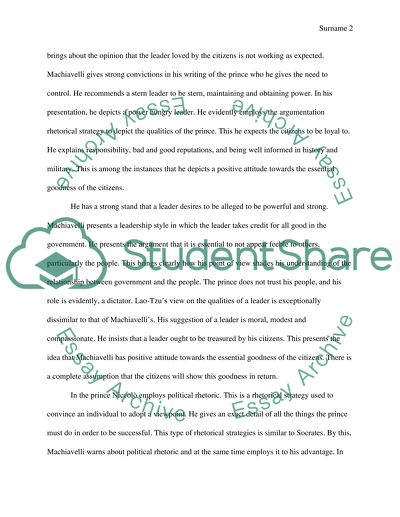Cite this document
(“Niccol Machiavelli and Lao-Tzu Essay Example | Topics and Well Written Essays - 1500 words”, n.d.)
Retrieved from https://studentshare.org/english/1486037-niccol-machiavelli-and-lao-tzu
Retrieved from https://studentshare.org/english/1486037-niccol-machiavelli-and-lao-tzu
(Niccol Machiavelli and Lao-Tzu Essay Example | Topics and Well Written Essays - 1500 Words)
https://studentshare.org/english/1486037-niccol-machiavelli-and-lao-tzu.
https://studentshare.org/english/1486037-niccol-machiavelli-and-lao-tzu.
“Niccol Machiavelli and Lao-Tzu Essay Example | Topics and Well Written Essays - 1500 Words”, n.d. https://studentshare.org/english/1486037-niccol-machiavelli-and-lao-tzu.


